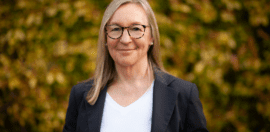What do the royal commissions reveal about us as a society?

21 November 2019 at 8:24 am
After three royal commissions into vulnerable people it is time we look at what needs to change and who is responsible for making those changes, writes Doug Taylor, deputy executive director of Uniting NSW and ACT.
The terrible examples of abuse that have come from the Royal Commission into Aged Care are both heart-breaking and troubling.
Not so long ago another royal commission uncovered harrowing accounts of sexual abuse and violence against children in institutions across the nation.
And now the royal commission into disability is holding hearings where there will sadly be revelations of abuse, neglect and exploitation of people with disabilities.
It’s important that as a nation we acknowledge the many lives that have been impacted by these terrible stories and do all we can to ensure they don’t happen again. One way of doing this is by taking a step back and asking why we have needed three royal commissions into vulnerable people in our society in such quick succession.
What does it reveal about us as a society and how we think about vulnerable people, the organisations who provide people with care and support, and the way in which government regulates these sectors?
“As a society we are not willing to face up to the harms that are all too often the reality for groups who find themselves at the edges of our community.”
The first and most important thing is that despite all the legislative protections for people living with vulnerabilities, neglect and abuse still occurs and far too often. Acknowledging this we can then ask what needs to change and who is responsible for making those changes.
Whilst progress has been made, stories from the royal commissions surely tell us that as a society we are not willing to face up to the harms that are all too often the reality for groups who find themselves at the edges of our community.
And sitting behind this is an implicit acceptance that people who are at the edges and experience the problems that go with that territory are of lesser importance. It also speaks of our discomfort in accepting the vulnerabilities of the human experience. For example, as a society we find the reality of the ageing process confronting.
It doesn’t help that our current economic approach reduces a person’s contribution to economic measures only. It is why the ageing of the population is seen almost exclusively as a problem, “demographic time bomb” with dire implications for rising health costs and reduced tax revenue, rather than a great reservoir of life experience and wisdom.
The other thread throughout the three royal commissions has been the failure of some of the organisations who have been entrusted by society to support and care for children, older people and those living with a disability.
For much of Australia’s history, this work has been done by not-for-profit organisations. Today these organisations have become a large industry, employing 1.2 million staff and attracting $146 billion in revenue.
What’s at the core of the failure of some of these organisations is the lack of strong not-for-profit boards; governance must balance the two important drivers of financial sustainability as well as social purpose. Boards play a critical role in setting culture, overseeing strategy and risk, and hiring key leaders.
Gone are the days when these organisations were focused on charity and lamington drives. These organisations are stewards of significant amounts of public money and provide care and support to many thousands of vulnerable people. They increasingly need board members who can straddle the world of business and social outcomes.
Reforms in recent years have required not-for-profit boards to ensure they have new management capabilities in areas like unit costing, pricing, marketing and performance management. These changes have been nothing short of revolutionary and many organisations have struggled.
Sharpening these skills as well as increasing proper accountability, something the royal commissions have highlighted, will make our human serves better and lead to better results for the people they are intended to serve.
Creating sustainable organisations is not the whole picture. Not-for-profit boards receive significant tax concessions because of the community benefit they create for people who experience disadvantage and social and economic exclusion.
This assumes they will incur additional costs in supporting these people and therefore they need to be able to show the difference they make by establishing the degree to which the people and communities they support can demonstrate improvements.
And finally, as a major funder, commissioner and regulator of services that support people in the community, government must also take notice of the insights from the three royal commissions.
Progressively over the last 20 years community services have been subject to changes from government designed to make their spend go further as demand for health and community services have increased. These have included introducing market-based reforms like greater forms of competition and empowering consumers and citizens by giving them funds directly so they can choose what services they want and from whom.
There have been many positives in these changes. The question that the government will need to grapple with post the three royal commissions is what are the limits of market forces for vulnerable people? How have some of our current practices inadvertently increased harm, rather than reducing or preventing it?
This includes coming to terms with the fact that not all people benefit equally from these new human services markets, for example those in regional areas or from socially or economically vulnerable communities. In other words, not all people can act as customers equally. We don’t all have the same amount of choice.







